About this course
Study on this Masters programme in Embedded Systems and IC Design at Liverpool John Moores University.
- Study at one the UK's leading Engineering Departments
- Benefit from the internationally-acclaimed research of LJMU's Electrical and Electronic Engineering Research Centre
- Postgraduates of this course highly sought after by major UK and international employers
- This programme is available as a standard full-time Masters one-year programme (180 credits) or as an extended full-time Masters 20 month programme (240 credits)
- On both versions in semesters one and two you will study full-time at LJMU completing the taught modules
- If you are on the one-year programme, you will complete your Dissertation over the summer
- If you are on the 20 month programme, you will undertake the Group Design Project and your Dissertation in the second year
Industrial organisations across all sectors have identified a gap in the market and the need for Engineers with good leadership and interpersonal skills in addition to their technical abilities.
This MSc degree programme provides excellent progression from electronic engineering undergraduate courses. You can also complete the course as part of your career development and to specialise in the Embedded Systems, Nano Electronics and IC Design fields.
Students who choose the 20 month MSc route will undertake a Group Design Project & Dissertation.
The Group Design Project aims to apply engineering, technology and scientific knowledge to a real-world design problem. Detailed ideas will be explored and developed through design, experimentation, computer modelling and/or manufacture.
Why should I choose the 20 month route?
The Group Design Project will encompass the wider aspects of social, economic, political, legislative, environmental, cultural, ethical and sustainability issues required in the modern environment.
- This route is designed for international students who wish to apply their knowledge to professional practice in the UK
- Industrial organisations across all sectors have identified a gap in the market for Engineers with good leadership and interpersonal skills in addition to their technical abilities
- This route will equip you with the transferrable project management skills needed to excel in your chosen career
- You will work in groups and meet regularly with an academic supervisor and any internal or external stakeholders in order to develop an effective team-working ethic
- As an alternative to the group project on the two-year programme an industrial placement is a possibility in year two
- You will need to apply directly to companies offering placements — the offer of a placement will be subject to a successful interview with the employer. Although the University will provide support and guidance to find an appropriate placement they are not guaranteed
- Please note that you cannot apply for the sandwich route before coming to LJMU — further information about applying to placement opportunities will be given during semester two of year one
- You will present your work through regular meetings with your supervisor as well as submitting progress reports and oral presentations. In this way you will have the chance to hone your communicative skills and leave University ready for the workplace
Course modules
Discover the building blocks of your programme
Further guidance on modules
Modules are designated core or optional in accordance with professional body requirements, as applicable, and LJMU’s Academic Framework Regulations. Whilst you are required to study core modules, optional modules provide you with an element of choice. Their availability may vary and will be subject to meeting minimum student numbers.
Where changes to modules are necessary these will be communicated as appropriate.
Core modules
Research Skills
10 credits
10 credits
The module will help prepare you to undertake your own research project and deliver the required skill set for successful completion of your investigations.
Modelling and Simulation
10 credits
10 credits
Professional and Leadership Skills
10 credits
10 credits
This module will help you to develop an awareness of the legal and ethical framework surrounding the activities of a professional engineer. You will also gain an awareness of the Emotional Competence Framework for a professional engineer. This will help you to develop a specific set of personal and social competency skills appropriate for a professional engineer, such as adaptability, creativity diversification, leveraging diversity, political awareness, leadership and team capabilities.
Embedded Systems
20 credits
20 credits
This module you to obtain both the theoretical and practical skills in the design and development of advanced embedded systems.
IC System Design
20 credits
20 credits
This module will help you to gain knowledge and understanding of a range of advanced IC digital design and analysis methods and to develop the design and test techniques required for modern digital microelectronic IC systems.
Nano Devices, Fabrication and Testing
20 credits
20 credits
This module will help you to develop an understanding of the latest development and challenges encountered by the microelectronic industry. Within the module, you will gain knowledge in the fabrication and testing of microelectronic devices. This will enhance your knowledge of the latest consumer electronic products.
Digital Design & Test
10 credits
10 credits
This module focuses on advancing skills in digital design, with an emphasis on digital circuit design at both transistor and gate levels. It aims to cultivate expertise in contemporary digital electronic circuit design and its associated testing procedures.
Advanced Signal Processing
20 credits
20 credits
This module aims to cultivate an advanced understanding of techniques and practical experience in industry-oriented applications of digital signal processing (DSP). It is aligned with several United Nations Sustainable Development Goals, including Good Health and Wellbeing, Affordable and Clean Energy, Industry, Innovation, Infrastructure, Sustainable Cities and Communities, and Responsible Consumption and Production.
MSc Dissertation
60 credits
60 credits
This project module provides you the opportunity to demonstrate your ability to drive your own deep/thorough investigation, undertake high quality academic research and demonstrate critical evaluation of your results.
Optional Modules
Group Design Project
60 credits
60 credits
This module will enable you to apply engineering, technology and scientific knowledge to a real-world design problem.
Sandwich Year Placement
60 credits
60 credits
Within this module you will have the chance to carry out an extended period of work experience at an approved partner that will complement your programme of study at LJMU.
This will give you the opportunity to develop professional skills relevant to your programme of study as well as the attitude and behaviours necessary for employment in a diverse and changing environment.
Your Learning Experience
An insight into teaching on your course
Teaching methods
You will be taught via lectures, tutorials, seminars, activity-based learning, group discussions, panel sessions, inverted classroom learning etc.
Applied learning
You will undertake an industrial placement during the second year of study. Interviews will take place with our industry partners to secure these placements.
How learning is monitored on your programme
To cater for the wide-ranging content of our courses and the varied learning preferences of our students, we offer a range of assessment methods on each programme.
Where you will study
What you can expect from your School
The Department of Electrical Engineering is in the Byrom Street complex of LJMU's City Campus. In addition to specialist engineering facilities, Byrom Street has high quality lecture theatres, meeting and seminar rooms plus social spaces and a large café. The Avril Robarts Library is just minutes away on Tithebarn Street.
Course tutors

Dr Gerard Edwards
- Programme Leader
This programme serves the growing and demanding needs of this hi-tech and very specialised industry at home and abroad. Backed by the experience of an internationally recognised research group in integrated circuit design, it is so satisfying to know that postgraduates from this programme are supporting and developing industry worldwide, becoming future leaders in their respective organisations.
This programme serves the growing and demanding needs of this hi-tech and very specialised industry at home and abroad. Backed by the experience of an internationally recognised research group in integrated circuit design, it is so satisfying to know that postgraduates from this programme are supporting and developing industry worldwide, becoming future leaders in their respective organisations.
Gerard started working as a Principal Lecturer in the Electronic & Electrical Engineering Division, School of Engineering, Faculty of Engineering and Technology, in Liverpool John Moores University (LJMU) from Sep. 2021. Gerard is the Programme Leader for the suite of Electronic & Electrical Engineering MSc degrees Electrical Power And Control Engineering, Embedded Systems & IC Design and Wireless Communications, offered at LJMU.Gerard pursued postdoctoral work at the Centre for Solid State Electronics Research, Arizona State University, USA, and the Department of Electrical Engineering, University of Notre Dame, USA. He then worked as a Senior Lecturer, Programme Leader in the Department of Computer Science and then the Department of Engineering at the University of Bolton. He moved to the University of Chester in 2014 to lead the development of the new Department of Electrical and Electronic Engineering.
-
 Programme Leader
Programme Leader -
 Lecturer/Senior Lecturer
Lecturer/Senior Lecturer
Career paths
Further your career prospects
LJMU has an excellent employability record with 96% (HESA 2018) of our postgraduates in work or further study six months after graduation. Our applied learning techniques and strong industry connections ensure our students are fully prepared for the workplace on graduation and understand how to apply their knowledge in a real world context.
Fees and funding
Tuition Fees:
- Home full-time per year:
- £9,920
Fees
The fees quoted at the top of this page cover registration, tuition, supervision, assessment and examinations as well as:
- library membership with access to printed, multimedia and digital resources
- access to programme-appropriate software
- library and student IT support
- free on-campus wifi via eduroam
Additional costs
Although not all of the following are compulsory/relevant, you should keep in mind the costs of:
- accommodation and living expenditure
- books (should you wish to have your own copies)
- printing, photocopying and stationery
- PC/laptop (should you prefer to purchase your own for independent study and online learning activities)
- mobile phone/tablet (to access online services)
- field trips (travel and activity costs)
- placements (travel expenses and living costs)
- student visas (international students only)
- study abroad opportunities (travel costs, accommodation, visas and immunisations)
- academic conferences (travel costs)
- professional-body membership
- graduation (gown hire etc)
Funding
There are many ways to fund postgraduate study for home and international students. From loans to International Scholarships and subject-specific funding, you’ll find all of the information you need on our specialist postgraduate funding pages.
Please be aware that the UK’s departure from the EU may affect your tuition fees. Learn more about your fee status and which tuition fees are relevant to you.
- International full-time per year:
- £18,250
- International year 1:
- £18,250
- International year 2:
- £5,630
- Placement year international:
- £3,830
International Scholarships and payment plans
Liverpool John Moores University is committed to supporting international students by providing a range of scholarships and flexible payment plans to help students manage their tuition fees.
Scholarships
LJMU provides a variety of scholarships to support international students. Scholarships are available to self-funded students who have accepted their offer and met all the conditions outlined in their offer letter. Students must also demonstrate that they can cover living costs, travel, and other expenses associated to studying at the university. Postgraduate scholarships include tuition fee reductions and are often offered in partnership with external funding organisations.
All self-funded international students are eligible for an automatic scholarship worth up to £4,000. For more details and to view our full list of scholarships, visit the international scholarship webpages.
Deposit
All students must pay a £5,000 deposit before they can receive their CAS letter.
For more information view our deposit page.
Tuition Fee Payment Plan
After paying their £5,000 deposit, students have the option to pay their fees in full or in three equal instalments minus any internal scholarships and discounts. There are two payment options available for international students. You can either pay your tuition fees in full before enrolment or opt for a payment plan. With the payment plan, you can pay your fees in three instalments after making your £5,000 deposit. The first instalment is due before enrolment.
All payments should be made through Flywire. Full details can be found in the How to Pay Guide.
Early Bird Tuition Fee discount
We are excited to introduce a £500 Early Payment Discount to all self-funded international students. Eligible self-funded students who pay their fees by the required deadlines will get a discount which will be automatically deducted from the 1st year of tuition fees.
To see the required deadlines please visit the webpage
Entry requirements
You will need:
Qualification requirements
Undergraduate degree
- a minimum 2.2 honours degree in Electrical/Electronic/Communication Engineering or a related engineering discipline
or
- an honours degree in Mathematics or a physical science, together with experience in a relevant field
or
- a degree with industrial experience or relevant postgraduate experience
plus
- graduate or corporate membership of a professional body such as The Institution of Engineering and Technology, The Institute of Measurement and Control or The Institute of Physics
Alternative qualifications considered
- Qualifications or experience deemed to be equivalent to the above will also be accepted
- Mature students must provide evidence of adequate educational and/or industrial experience
Additional requirements
-
Interview required
- Non-standard applications may be subject to interview
International requirements
IELTS
- IELTS 6.0 (minimum 5.5 in each component)
How to apply
Securing your place at LJMU
To apply for this programme, you are required to complete an LJMU online application form. You will need to provide details of previous qualifications and a personal statement outlining why you wish to study this programme.
Your university life
From accommodation and academic support to clubs and societies. Find out what LJMU has to offer.
Talk to our students
Connect with a current LJMU student for advice and guidance on university life, courses and more.
See what our students are saying
At LJMU we want you to know you’re making the right choice by studying with us. You can see what our students are saying about their experience with us through their reviews on the following websites:
Related Links
News and views
Browse through the latest news and stories from the university

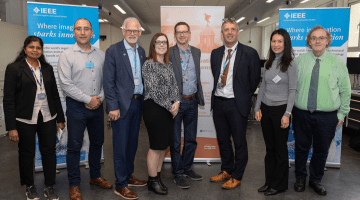
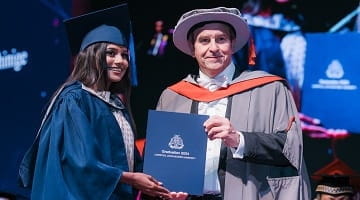
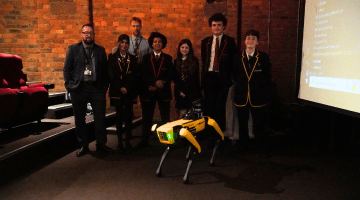
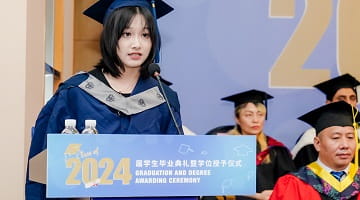




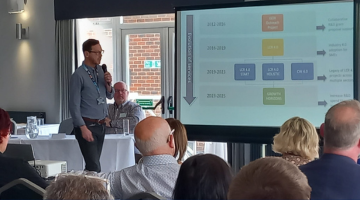
The University reserves the right to withdraw or make alterations to a course and facilities if necessary; this may be because such changes are deemed to be beneficial to students, are minor in nature and unlikely to impact negatively upon students or become necessary due to circumstances beyond the control of the University. Where this does happen, the University operates a policy of consultation, advice and support to all enrolled students affected by the proposed change to their course or module.









